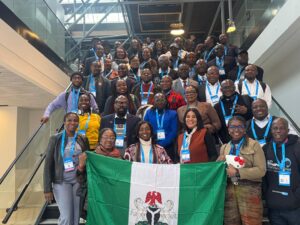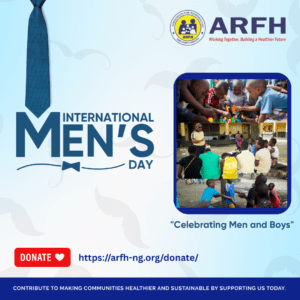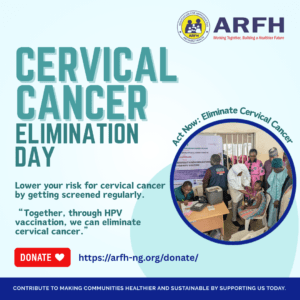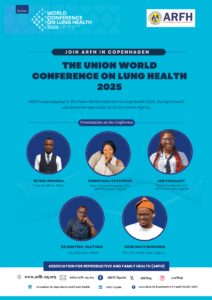Tuberculosis continues to remain a major public health problem in Nigeria. The TB burden is compounded by high prevalence of HIV in the country which stands at about 3.4 % in the general population 2012 National HIV/AIDS and Reproductive Health Survey-Plus (NARHS Plus). An essential component of TB control programme in Nigeria is the empowerment of communities and patients affected by TB. Several community Directly Observed Treatment (DOT) models have been implemented in Nigeria to compliment the facility-based DOT with Support from the Global Fund. WHO in 2000 thus recommended community-based TB care as an effective, acceptable, affordable and cost-effective way to deliver TB DOTS services. ARFH is working in collaboration with the National TB and Leprosy Control Program (NTBLCP), the ILEP partners and Health Alive Foundation towards the elimination of TB as a public health challenge in Nigeria. Community TB Care (CTBC) is one of the components of the Global Fund TB grant in Nigeria. An important mandate of the ARFH/Global CTBC program is active TB case findings and effective referral of suspected TB cases in the community to appropriate health facilities in order to receive diagnosis and care. Health education, social mobilization and awareness creation are carried out by trained community volunteers and Community Based Organizations (CBO).
ARFH/Global Fund-supported Community TB program in Nigeria has coverage in 24 states, 236 LGAs and 720 Communities/wards of the federation. Since its inception, Behaviour Communication for Change have been undertaken to improve the level of people’s knowledge about the disease and to promote the adoption of behaviour that reduce the occurrence and / or worsening of TB cases as well as mobilizing people and resources towards the elimination of TB in their respective communities through the engagement of 420 community based organizations (CBOs).
 ARFH in collaboration with a local NGO Health Alive Foundation has trained over 4400 Community volunteers (CV) and has built the capacities of 420 CBOs to support the control of TB in their communities. According to the NTBLCP TB Statistics for Quarter 4 of 2012, the number of suspects referred by Community volunteers increased from 6% (in Quarter 1) to 8% (in Quarter 4), while proportion of TB cases managed through support of Treatment Supporters/CV increased from 18% to 45% between Quarter 1 and Quarter 4 of 2012. Two years ago, 45 years old cattle rearer Umar Jalo and his nomadic ‘Bororo’ family were successful treated of TB after a trained Community Health Volunteer referred the whole family to Oke-Ode Specialist Hospital in Kwara State North Central Nigeria to be screened for tuberculosis. A sputum test (acid-fast bacilli microscopy) confirmed the whole family to be positive and they were immediately placed on treatment. Umar’s family situation is not unique; it is in fact a definitive illustration of the TB burden in Nigeria. Their story highlights the critical role of the community TB care initiative in improving awareness about TB and increasing access to TB services
ARFH in collaboration with a local NGO Health Alive Foundation has trained over 4400 Community volunteers (CV) and has built the capacities of 420 CBOs to support the control of TB in their communities. According to the NTBLCP TB Statistics for Quarter 4 of 2012, the number of suspects referred by Community volunteers increased from 6% (in Quarter 1) to 8% (in Quarter 4), while proportion of TB cases managed through support of Treatment Supporters/CV increased from 18% to 45% between Quarter 1 and Quarter 4 of 2012. Two years ago, 45 years old cattle rearer Umar Jalo and his nomadic ‘Bororo’ family were successful treated of TB after a trained Community Health Volunteer referred the whole family to Oke-Ode Specialist Hospital in Kwara State North Central Nigeria to be screened for tuberculosis. A sputum test (acid-fast bacilli microscopy) confirmed the whole family to be positive and they were immediately placed on treatment. Umar’s family situation is not unique; it is in fact a definitive illustration of the TB burden in Nigeria. Their story highlights the critical role of the community TB care initiative in improving awareness about TB and increasing access to TB services




